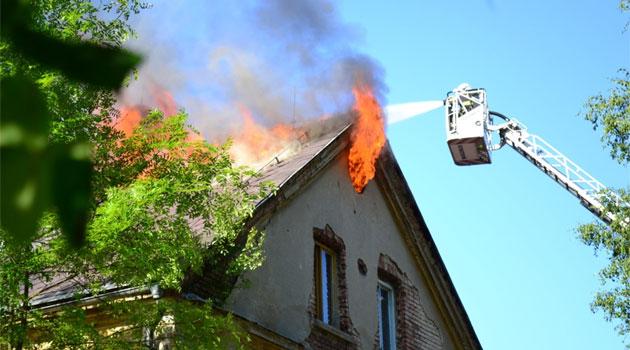Czech Platform for Social Housing: Fire shows children must be rescued from living in residential hotels

The following is a press release from the Czech Platform for Social Housing.
On the night of 6 April, six children who had been forced to live in a residential hotel in the town of Ostrov near Karlovy Vary almost burned to death. Tenants were standing with their children in the windows of the building planning to jump in order to escape the flames.
According to official numbers, a minimum of 5 400 children live in residential hotels today where conditions are not up to code. How much longer does the Czech Government intend to wait before it begins addressing their situations?
We demand a clear plan from the Government to end the homelessness of families with children by 2017. Our solutions would cost six times less than the current practices do.
The 30 tenants of the residential hotel that caught fire in Ostrov were at immediate risk of losing their lives. Six of those tenants were minors.
"Tenants with young children were planning to jump out of the windows on the floor above the burning unit. We extended ladders up to where they were and rescued them," Martin Kasal, spokesperson for the firefighters, described the dramatic situation.
There is no guarantee that the response to the next fire will be as rapid. Again, according to data from the Czech Labor and Social Affairs Ministry, there were at least 5 400 minors living in residential hotels in December 2014.
Experts, however, estimate that the actual number of children being forced to live long-term in overpriced residential hotels that are not up to code may actually be four times as high as those estimates. "How many such cases do we need for the Government to finally start doing something about this issue?" asks Štěpán Ripka, chair of the Platform for Social Housing.
In its recently approved Romani Integration Strategy, the Government has admitted that it is responsible for the boom in residential hotels in recent years. That document states that "the housing supplement was set up to facilitate disproportionate use to cover overpriced forms of substandard housing, which in practice led to the creation of so-called social residential hotels and in some cases to a rise in the cost of such accommodation irrespective of the quality of services provided."
Instead of seeking quality alternatives to house socially excluded families, the sta,te invented measures that "threw the baby out with the bath water." According to an amendment to the law on aid to those in material distress, as of 1 May municipalities will be able to recommend that specific residential hotels not be included as the recipients of housing subsidies, which will lead to their closure.
"If the municipalities were to take such a step in just 20 % of such cases, we would have more than 1 000 children on the street here by 1 June. The Government does not have an adequate plan for resolving their situations," says Jan Milota, director of the Platform for Social Housing.
Experts and nonprofit organizations are calling on the Government to rapidly begin reviewing this problem. "We have a crisis situation here. There is a need to design an emergency action plan to end the homelessness of families with children and to move them out of the residential hotels and into real housing. We want the Government to address this problem as soon as possible, by 2017 there should be no more homeless families with children. It is not possible to wait any longer, six children almost died today," says Ivana Nesétová, a Platform adviser.
"If we were to continue with the current method of so-called child protection by putting these children into children’s homes, it would cost us CZK 2.25 billion annually. We are proposing a solution that is almost six times less expensive. Specifically, we demand that the Government issue a one-time payment of CZK 65 000 per child living in a residential hotel. That amount of money would allow a family to move into real housing and stabilize their situation for at least one year. The situation is urgent, and CZK 65 000 to save the life of one child is not a lot of money," says Ripka.
In addition, Ripka believes it is necessary to accelerate the adoption of the Social Housing Concept and Social Housing Act. This legislation will systemically prevent such situations in future.